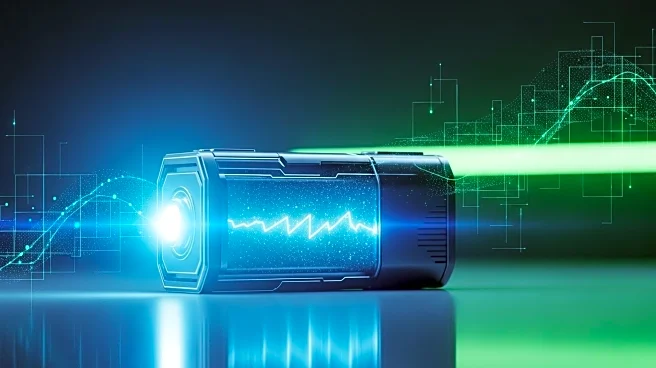What's Happening?
Exide Industries Limited has announced an additional investment of ₹80 crore in its subsidiary, Exide Energy Solutions Limited, through a rights issue. This investment aims to support the subsidiary's greenfield project in Bengaluru and meet operational funding needs. Exide Energy Solutions, established in March 2022, focuses on manufacturing lithium-ion battery cells, modules, and packs for electric vehicles and stationary applications. Despite reporting a loss after tax of ₹209.12 crore for the financial year, the subsidiary continues to expand its operations to align with India's growing demand for energy storage solutions.
Why It's Important?
Exide Industries' investment in lithium-ion battery technology reflects the increasing importance of energy storage solutions in India's electric vehicle market. As the country transitions towards sustainable energy, the demand for advanced battery technologies is expected to rise, offering growth opportunities for companies like Exide. This strategic move also highlights the company's commitment to diversifying beyond traditional lead-acid batteries, positioning itself as a key player in the next-generation battery market. The investment could drive innovation and competitiveness in the industry, influencing market dynamics and consumer choices.
What's Next?
Exide Energy Solutions is set to continue its expansion, with the Bengaluru greenfield project playing a crucial role in its growth strategy. The subsidiary's focus on advanced battery technologies may attract partnerships and collaborations, enhancing its market position. As India's electric vehicle market evolves, regulatory changes and government incentives could further impact the industry's trajectory. Exide's investment may prompt other companies to explore similar opportunities, potentially leading to increased competition and technological advancements in the battery sector.
Beyond the Headlines
The investment underscores the broader shift towards sustainable energy solutions, with implications for environmental policies and economic development. As battery technology advances, ethical considerations regarding resource extraction and recycling may arise, influencing industry practices and regulatory frameworks. The focus on lithium-ion batteries also highlights the need for innovation in energy storage, which could drive long-term shifts in energy consumption patterns and infrastructure development.








